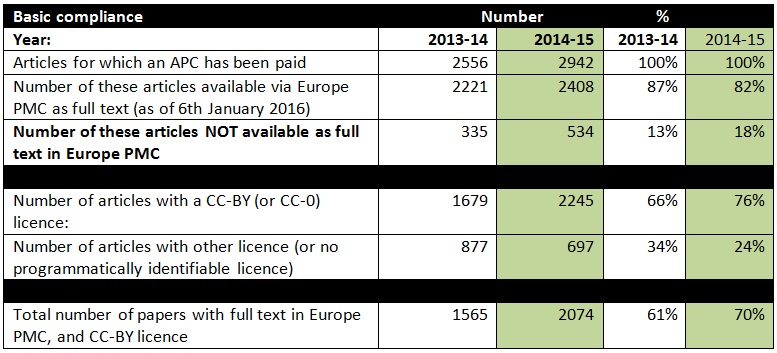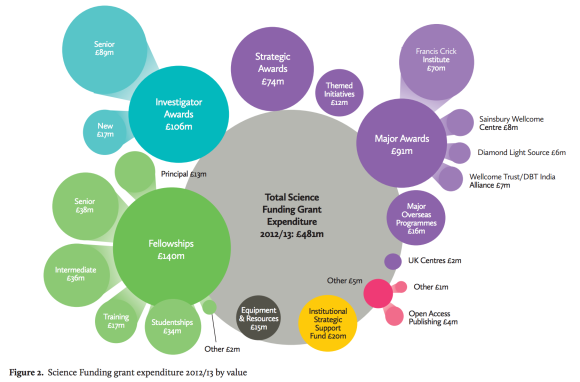Preprints: We're Supporting Calls for a Central Service
We now allow researchers to cite preprints in their grant applications.

Send us a link
We now allow researchers to cite preprints in their grant applications.

A platform for displaying text-mined annotations as a means to link research articles with biological data
Earlier this year, we announced that six teams had made it through to the final of the Open Science Prize. We’re asking you to help us choose the three most impactful and novel prototypes from among the six finalists.

In April, we announced we were pausing our public engagement funding to thoroughly review and explore the best ways for us to support public engagement activities in future. Now, we’re pleased – and more than a little excited – to share the outcome of this work.

Wellcome Open Research provides all Wellcome researchers with a place to rapidly publish any results they think are worth sharing.

Progress update from symposium sponsors: The Academy of Medical Sciences, the BBSRC, the MRC and Wellcome Trust.
Robert Kiley, our Head of Digital Services, explains why Wellcome has introduced a set of publisher requirements for open access publications.

The Wellcome Trust publishes details of Open Access spend and analysis of whether they get what they pay for.

Peter Maloca from University of Basel is one of the winners of the Wellcome Image Awards 2016.

To help make the costs around open access more transparent, the Wellcome Trust has published details on how much it spent on article processing charges in the year 2013-14.

The Wellcome Trust launches the new Collaborative Awards, enabling teams of researchers to apply together and bring new perspectives to the work they are doing.

The Wellcome Trust and the RCUK plan to pilot a streamlined endorsement process to make it easier for outstanding international researchers to obtain Tier 1 Exceptional Talent or Exceptional Promise visas.
The Wellcome Trust has released new data and infographics to show where it spends out money.

Research Councils UK, the Wellcome Trust, the Austrian Science Fund (FWF), the Luxembourg National Research Fund (FNR) and the Max Planck Institute for Gravitational Physics worried about high open access fees charged by “hybrid” journals could refuse to pay fees above a set threshold, a report suggests.